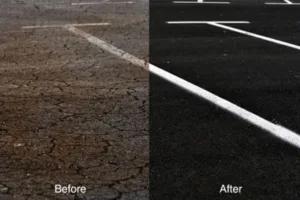
Asphalt Salvation: Choosing Between Sealcoat, Overlay, and Reconstruction
Asphalt is the unsung hero of driveways and parking lots, quietly enduring the relentless wear and tear of vehicles, weather,

Asphalt is the unsung hero of driveways and parking lots, quietly enduring the relentless wear and tear of vehicles, weather,
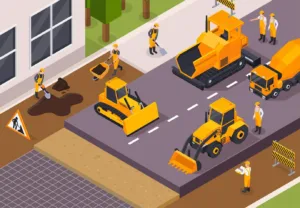
When it comes to selecting a paving company in the DMV (D.C., Maryland, Virginia) area, the stakes are as high
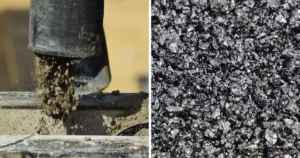
Are you planning a paving project and finding yourself torn between concrete and asphalt? Both materials have their unique advantages
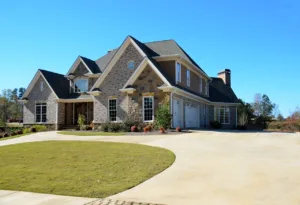
The driveway is often the first part of your home that visitors see, making it a critical component of your
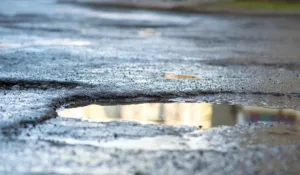
Your driveway is more than just a place to park your car; it’s the welcome mat to your home and
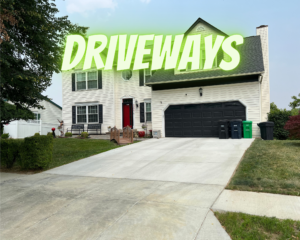
Typically, you can walk on concrete after 24 to 48 hours of setting. However, it takes around 28 days for

Director at AR Concrete, shares expert insights on industry trends, techniques, and innovations in our informative and engaging blog



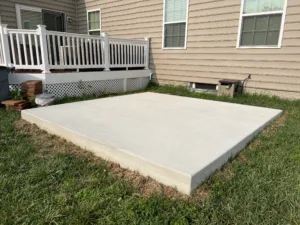
Yes. Every driveway should be sealed with a high-performing sealer.
Yes, resurfacing concrete driveway can last many years with proper care and maintenance.
A driveway will increase the value of your home by up to ten percent.
Concrete Flaking and its Origins
Water Damage: Repeated freeze-thaw cycles can cause water to expand within the concrete, leading to flaking. Poor Concrete Mix: Insufficient cement in the mix can lead to a weak top layer, prone to flaking.
While concrete driveways are more expensive initially than asphalt ones, they’re cheaper in the long run due to their lifespan. Concrete driveways require little upkeep and will last for years. Longer lifespan especially with proper maintenance
DURABILITY. Durability is a major factor for homeowners to consider when choosing driveway material, especially if you have multiple cars or lots of foot traffic. Concrete is significantly more durable than asphalt. Compared to asphalt, concrete withstands basic wear and tear and weather elements.
The average lifespan for an asphalt driveway is 10-20 years, while a concrete one may last 30 years. UV rays, exposure to harsh weather, and constant wheel and foot traffic all contribute to an aging driveway and make it more prone to cracks and potholes.
AR Concrete collaborates with financial institutions to offer financing options for your hardscape project. Contact us for further information.
Your project manager will keep you in the loop every step of the way. If you’re thinking about tweaking your project or have new ideas, just give them a shout. We’re here to help you refine your plans and work through any budget changes together.
Hardscaping refers to the non-living elements of your outdoor space, including patios, walkways, retaining walls, and other structures made from hard materials like stone, concrete, and brick. Landscaping, on the other hand, involves the living elements, such as plants, trees, and grass. Both hardscaping and landscaping work together to create a cohesive outdoor environment.
The duration of a hardscape project can vary widely based on its scope, complexity, and the materials used. Smaller projects like a simple patio might take a few days, while larger, more intricate designs could take several weeks to months. We can provide a more accurate timeline once we understand the specifics of your project.
Hardscaping is generally low maintenance compared to landscaping. However, periodic tasks such as sealing stone surfaces, checking for weed growth between pavers, and ensuring proper drainage can extend the life and beauty of your hardscape. Each material may have specific maintenance needs, and we’ll provide you with tailored care instructions for your project.
Whether or not you need permits depends on the scope of your project and local regulations. For larger projects like decks, retaining walls of certain heights, and structures that affect drainage, permits are often required. We handle the permitting process, ensuring that all work is compliant with local codes and regulations, giving you peace of mind.
Yes, hardscaping can be strategically designed to address drainage issues and prevent water accumulation in your yard. Elements like graded patios, permeable pavers, and French drains can redirect water flow away from your home and garden areas, minimizing the risk of water damage and soil erosion. We can assess your space and suggest solutions tailored to your specific drainage needs.